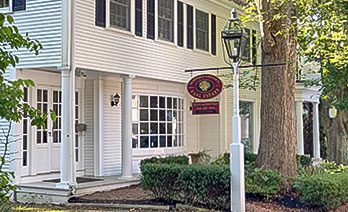Short-Term Rental Bill Still Not Law As It Sits On Governor’s Desk With No Update As To Whether It Will Be Signed
 Last week, the Massachusetts legislature re-enacted a bill to regulate and tax short-term “vacation” rentals. The proposal now sits on Governor Baker’s desk; he has until midnight Sunday, December 30th to act, or it becomes law without his signature.
Last week, the Massachusetts legislature re-enacted a bill to regulate and tax short-term “vacation” rentals. The proposal now sits on Governor Baker’s desk; he has until midnight Sunday, December 30th to act, or it becomes law without his signature.
We are working on complete guidance for real estate brokerages about the necessary changes brokerages will need to make. We will distribute this guidance if the bill becomes law.
Here are the key details about the bill as currently drafted:
- The entity (i.e. real estate brokerage) that collects payment from the renter will be required to collect the tax and remit the tax to the state;
- The tax would apply to leases entered into on or after January 1, 2019 AND for stays on and after July 1, 2019;
- The bill would extend to the current lodging tax to short-term rentals, so a town’s current lodging tax rate would become the local tax rate on short-term rentals. You can find current lodging tax rates for each town, HERE; tax rates would be the current rate at the time of the stay. CCIAOR and MAR will be providing guidance on updating necessary agreements to reflect that current state and local tax rates are subject to change.
- The Cape Cod and Islands Water Protection Fund would add an additional 2.75% tax to short-term rentals and hotel rooms for towns located in Barnstable, Dukes, and Nantucket counties.
- The proposed tax for stays July 1, 2019 or later (barring no other action by local legislative bodies) would be 5.7% state tax + up to 6% local tax (the existing lodging tax in each town) + 2.75% Cape Cod and Islands Water Protection Fund;
- Homeowners would be required to carry at least $1 million of liability coverage for each short-term rental unless the hosting platform (ex; the real estate brokerage, HomeAway, AirBnb, etc) maintains coverage of at least that amount. Additionally, real estate brokerages and other hosting platforms would be required to provide a written disclosure to homeowners that they are required to carry the additional insurance. MAR and CCIAOR will have a standard form for members to use.
CCIAOR recognizes that the timeline laid out above will be difficult to implement. If you would like to raise concerns to legislators about the implementation dates of the proposed law, contact Representative Sarah Peake at [email protected] or at 617-722-2040 and Senator Julian Cyr at [email protected] or at 617-722-1570.




 Michael Blanchard
Michael Blanchard